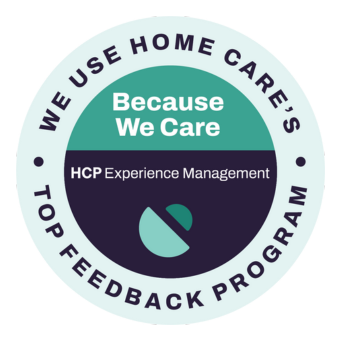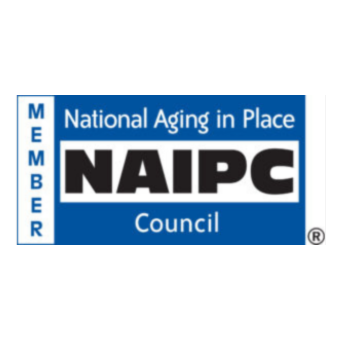As a professional caregiver in Raleigh, your role must go well beyond the routine tasks of providing physical care to clients. No matter where you work, caregiving requires a genuine and heartfelt commitment to delivering compassionate care. The ability to do so is not only essential for the overall well-being of those under your care but also for enjoying a fulfilling and rewarding career. Read on to learn more about the significance of compassion and care and how to embrace those essential caregiver qualities as your professional journey unfolds.
Why Are Compassion and Care Essential Caregiver Qualities?
As the cornerstone of professional caregiving, compassionate care is much more than attending to the physical needs of individuals. This concept encompasses a holistic approach that addresses their emotional, mental, and spiritual well-being. When caregivers demonstrate empathy, kindness, and genuine concern, they create an environment of trust and understanding that allows individuals to feel safe, valued, and supported.
Compassionate care has been shown to improve the overall quality of life for individuals in need by promoting a sense of belonging, reducing anxiety and stress, and enhancing emotional well-being. By prioritizing compassion, caregivers can help foster a positive and nurturing environment that promotes physical and emotional healing.
Compassionate Care Tips for Professional Caregivers in Raleigh
Whether you work at a hospital, a residential care facility, or for a home care provider, here’s how to deliver the compassionate care your clients deserve:
Establish a Personal Connection
Spend time getting to know the individuals under your care on a personal level. Show genuine interest in their lives, their hobbies, and their stories. Taking these steps helps build trust and creates a sense of companionship and belonging.
Be an Active Listener
Active listening is a powerful tool for demonstrating care and compassion. Pay attention to verbal and non-verbal cues, and make individuals feel heard and understood. Encourage open communication, validate their feelings, and provide emotional support when needed.
Respect Client Autonomy
Treat individuals with respect, dignity, and autonomy and involve them in decision-making processes regarding their care whenever possible. Respect their choices and preferences and empower them to maintain as much independence as circumstances allow.
Let Them Know You Care
Empathy is the ability to understand and share in the emotions of others. Put yourself in the shoes of those under your care and try to understand their perspective. Express empathy through words, gestures, and actions, offering comfort and reassurance during difficult times.
Practice Patience and Understanding
Caregiving can be challenging, and individuals under your care may exhibit frustrating or difficult-to-handle behaviors. Maintain your composure, practice patience, and seek to understand the underlying reasons behind their actions or emotions. This approach will help you provide the necessary support without being judgmental or resentful.
Celebrate Milestones and Achievements
Acknowledge and celebrate your clients’ accomplishments, no matter how small or insignificant they might seem. Recognizing their progress can boost a care recipient’s self-esteem and motivation, promoting a positive environment that encourages personal growth.
How to Maintain Care and Compassion as a Professional Caregiver
Once incorporated into your daily routine, sustaining a compassionate caregiving approach is possible by taking these steps:
Practice Self-care
Caring for others sometimes requires caregivers to prioritize their own needs. Engage in activities that help you relax, recharge, and maintain a positive mindset. Seek support from family, friends, or professional networks to prevent burnout and compassion fatigue.
Embrace Continued Education and Training
Stay updated with the latest developments in caregiving by attending workshops, seminars, or online courses, as this will help enhance your professional skills and equip you with the knowledge to provide the best care possible.
Seek Peer Support
Connect with fellow caregivers to share experiences, exchange advice, and seek guidance. Peer support groups can provide a valuable space to discuss challenges, find encouragement, and learn from others in similar roles.
Reflect and Learn
Regularly reflect on your caregiving experiences to identify areas for improvement and learn from past situations. Self-reflection can help you grow personally and professionally, ensuring you continually provide the highest standard of care.
What it All Means for You
Being a professional caregiver is a noble and rewarding profession that requires a genuine commitment to compassionate care. By going beyond the routine tasks and demonstrating qualities like care, empathy, and understanding, caregivers can positively impact the lives of those they serve.
Remember to establish personal connections, practice active listening, respect autonomy, show empathy, practice patience, and celebrate achievements. Furthermore, prioritize self-care, continue your education, seek peer support, and engage in self-reflection to ensure the quality and sustainability of your compassionate care throughout your career as a professional caregiver.
Why Become a Professional In-Home Caregiver?
As the demand for professional caregivers continues to rise, individuals seeking a rewarding career in the healthcare industry have various options, including home care. Here’s what in-home caregivers love most about their jobs:
Personalized Care Approach
In-home caregivers have the unique opportunity to provide personalized care tailored to the specific needs of their clients. Unlike institutional care settings, where caregivers often have multiple patients, in-home caregivers can establish one-on-one relationships with their clients, allowing for a more comprehensive and individualized approach to care.
Familiar Care Environment
As they say, “There’s no place like home.” One of the primary advantages of being an in-home caregiver is the ability to provide care in the comfort of the client’s private residence. The familiar surroundings contribute to a sense of security and well-being, positively impacting the client’s physical and mental health. Furthermore, being in a familiar environment helps clients reduce stress and anxiety, leading to better overall health outcomes.
Promotes Independence and Autonomy
In-home caregivers play a vital role in helping clients maintain their independence and autonomy. Through assistance with activities of daily living (ADLs), caregivers enable clients to live independently under their own roofs. This level of support preserves the client’s dignity and promotes a sense of self-worth and empowerment.
Emotional Support and Companionship
In-home caregivers often become trusted companions to their clients, offering emotional support and companionship. The compassionate care these professionals provide can significantly improve their clients’ mental well-being, minimizing feelings of loneliness and isolation. The strong bonds formed between caregivers and clients can create a sense of belonging and improve overall quality of life.
Flexible Hours
Compared to peers in institutional settings, in-home caregivers enjoy greater flexibility and a healthier work-life balance. They can often choose their work hours based on their availability and personal commitments, making it easier to balance work with their own family and personal responsibilities. This scheduling flexibility can contribute to reduced stress levels and increased job satisfaction for caregivers.
In conclusion, becoming an in-home caregiver offers numerous benefits, including the ability to provide professional, personalized, and compassionate care in the comfortable surroundings of your clients’ private residences. If you are passionate about making a difference in the lives of others, becoming an in-home caregiver could be your career calling – one far more rewarding than any other job you’ve had before!
Join Our Winning Home Care Team in Raleigh Today!
Are you a professional caregiver seeking a fresh career challenge? If so, HomeChoice Home Care Solutions in Raleigh would love to speak with you. Due to our expanding client load, we are currently seeking qualified professional caregivers to fill several exciting positions. While proudly serving the Raleigh, Durham, Wake County, Johnston County, Wake Forest, and Chapel Hill, North Carolina communities, we support clients and families with compassionate home care services, including Companionship Care, Personal Care, and Respite Care.
As a highly valued member of the HomeChoice Home Care Solutions team, you’ll enjoy a fast-paced, positive work environment where your input is valued and hard work rewarded. We also offer competitive pay, flexible scheduling, ongoing caregiver skills training, and career advancement opportunities galore. No matter your experience level or education, we’d love to hear from you! To learn more about our home care jobs, please visit us today at www.homechoicehomecare.com.












